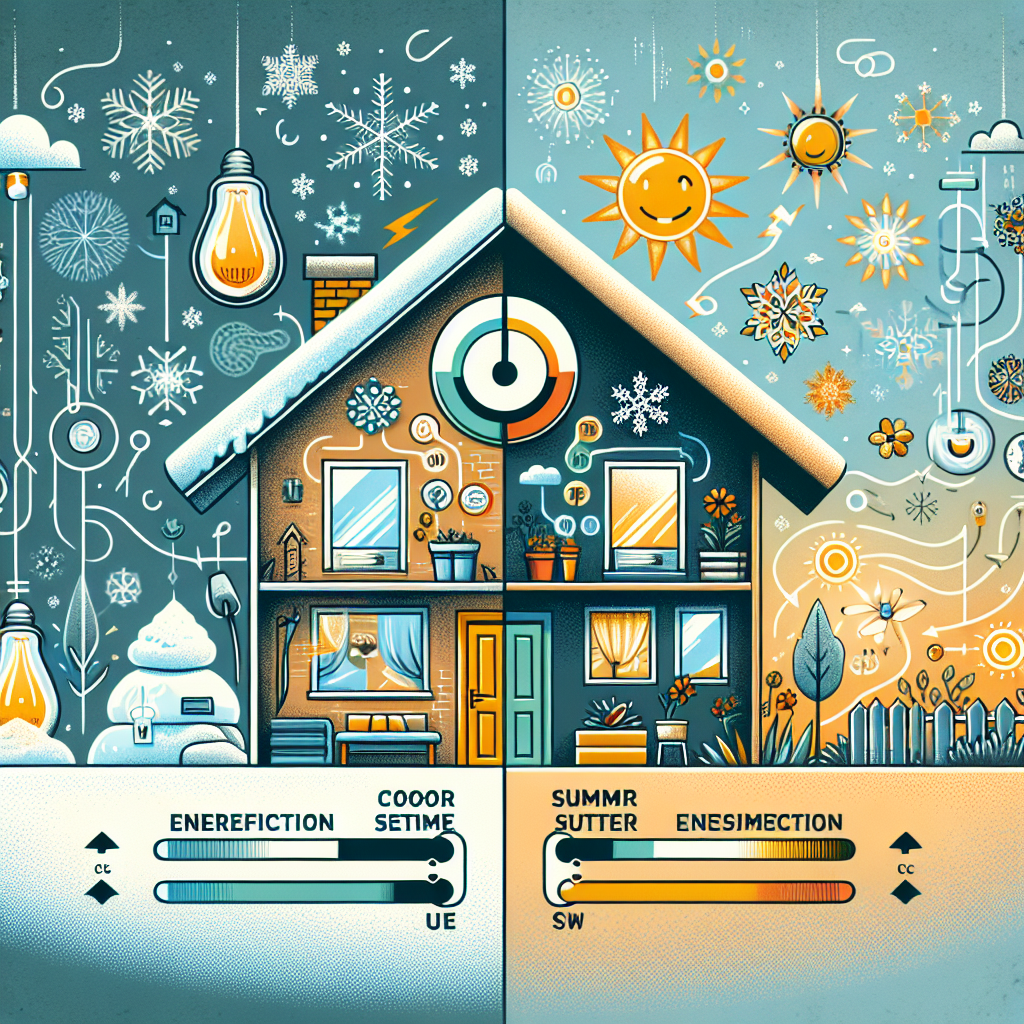As the seasons change, so do our energy needs. When winter arrives, the chill in the air compels us to turn on the heat, while the blistering summer sun pushes us to reach for the air conditioner. However, these comforts can come at a cost. Thankfully, there are several energy-saving tips that can help you stay warm in winter and cool in summer without breaking the bank. In this article, we’ll explore practical strategies for energy-efficient heating and cooling, ensuring comfort year-round.
Understanding Energy Use in Different Seasons
Before diving into solutions, it’s essential to understand how energy consumption varies between seasons. According to the U.S. Department of Energy, heating and cooling together account for nearly half of a household’s energy use. Consequently, optimizing your energy efficiency can significantly reduce your utility bills and your carbon footprint.
Energy-Saving Tips for Winter Heating
1. Seal and Insulate Wisely
A well-insulated home helps retain heat, allowing your heating system to work less while keeping your space cozy. Start by sealing windows and doors with weatherstripping or caulk. Pay special attention to areas around pipes, outlets, and electrical conduits. Adding insulation to your attic and basement can also enhance energy efficiency.
2. Programmable Thermostats: Your Best Friend
Investing in a programmable thermostat can yield substantial energy savings. Set your thermostat a few degrees lower during the day when you’re at work, and schedule it to warm up your home before you return. This simple adjustment can reduce energy consumption by up to 10%.
3. Utilize Ceiling Fans Wisely
Ceiling fans aren’t just for summer! In winter, set your ceiling fans to rotate clockwise at a low speed. This direction pushes warm air down, allowing you to feel warmer without cranking up the heat.
4. Regular Maintenance of Heating Systems
Keep your heating system in top shape by scheduling regular maintenance. Change filters frequently and have a professional check your furnace annually. A well-maintained system operates more efficiently and can lower your energy usage.
Energy-Saving Tips for Summer Cooling
1. Optimize Your Air Conditioning System
Just as with heating systems, regular maintenance is crucial for air conditioners. Change filters every month and ensure the outdoor unit is free of debris. Additionally, consider upgrading to an Energy Star-rated unit to improve efficiency.
2. Smart Thermostat Adjustments
Similar to winter, a programmable or smart thermostat can make a significant difference in summer energy bills. Raise the temperature a few degrees when you’re not at home, and schedule it to cool down before your arrival.
3. Embrace Natural Ventilation
Take advantage of cooler evening and nighttime temperatures by opening windows to ventilate your home. Use fans to circulate air, and close curtains or shades during the day to block out sunlight and keep your home cooler.
4. Minimize Heat Production
Limit activities that generate heat within your home, such as using the oven or running hot appliances during the day. Instead, consider grilling outdoors or using a microwave. By minimizing unnecessary heat production, your air conditioning system will have to work less hard.
Understand Energy-Efficient Practices Year-Round
1. Invest in Quality Windows
If you’re considering upgrades, investing in double-glazed or energy-efficient windows can drastically reduce energy loss. These windows maintain a consistent indoor temperature, making it easier to keep your home warm or cool without heavy reliance on heating and cooling systems.
2. Consider Alternative Energy Sources
Incorporating renewable energy sources like solar panels not only reduces your energy bills but also supports sustainability. Explore local incentives for switching to solar energy; you might be pleasantly surprised by the financial benefits.
3. Stay Informed about Utility Programs
Many utility companies offer programs and services that help customers save on energy. From rebates on energy-efficient appliances to energy audits that identify where you can save, engaging with your utility provider can lead to valuable cost savings.
Conclusion: Save Energy, Save Money, Save the Planet
Switching your energy habits with the seasons doesn’t have to be overwhelming. By implementing a few simple changes, you can create a comfortable living environment all year round while significantly reducing your energy consumption. Embrace these tips, and you’ll not only save money but also contribute to a more sustainable future. So, as you transition through the seasons, remember: efficient heating and cooling is just a few adjustments away!


